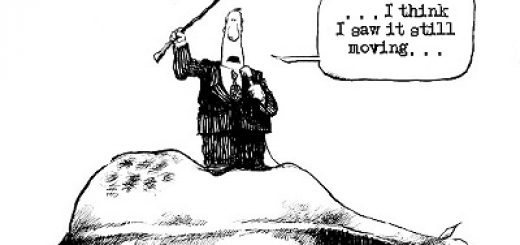Balak – Judge, Jury and Executioner

Moshe Rabbeinu couldn’t recall the halacha about the proper course of action when encountering a Jewish man engaging intimately with a non-Jewish woman (Sanhedrin 82a). Pinchas had to remind him that Moshe himself had taught him that kana’im pog’im bo, “zealots have permission to attack the violator.”
Even then, though, after being reminded of the halacha, Moshe demurs, telling Pinchas that “the reader of the letter should be its contents’ executor.”
It is an interesting aphorism, but was there any compelling reason why Moshe didn’t rise to the task of dispatching Zimri and Kozbi himself? It is hard to imagine the ultimate defender of Torah and Klal Yisrael not wishing to himself undertake what needed to be done to defend the Torah and protect his people. After all, the immediately preceding psukim have him punishing those who engaged in worship of Baal Pe’or.
Rav Shlomo Ganzfried, the author of the Kitzur Shulchan Aruch, in his sefer Aperion, suggests a reason, beyond the upshot of the aphorism, for Moshe’s hesitancy.
He points out that Zimri had challenged Moshe, asking if Cozbi was forbidden to him. “And if you say that she is forbidden, what about the daughter of Yitro to whom you are married? Who permitted her to you?” (ibid).
Moshe feared, Rav Ganzfried suggests, that if he were the one to dispatch the sinners, it might be seen as the settling of a personal score, not the heeding of a Torah law. It might be perceived not as an act of kana’us but rather of negi’us.
It occurs to me that Moshe may not so much have been concerned with what others might think but rather demurred and invoked the aphorism of the letter-reader because of the singular nature of kana’im pog’im bo.
Normally, a violator of the law must appear in court and his case properly adjudicated. Kana’im pog’im bo is an exception to that. Thus, the executor of the punishment is acting in a way like a judge. Halacha disallows a judge from adjudicating a case if he has any relationship of pre-existing bias for or against a litigant. So Moshe may have felt he could not halachically assume the role of a kana’i here. As to who could, well, he said to Pinchas, “You read the letter.”
© 2025 Rabbi Avi Shafran
My most recent Ami Magazine column, “Getting Away With Murder,” can be read here.



Recent Comments